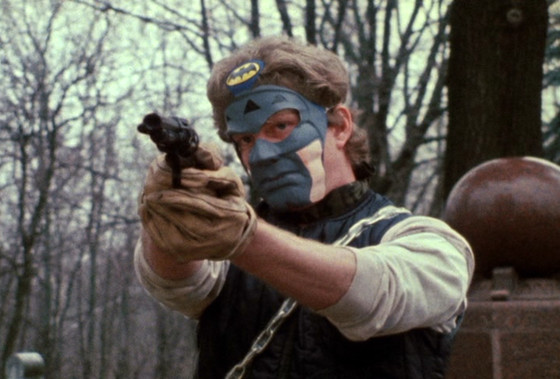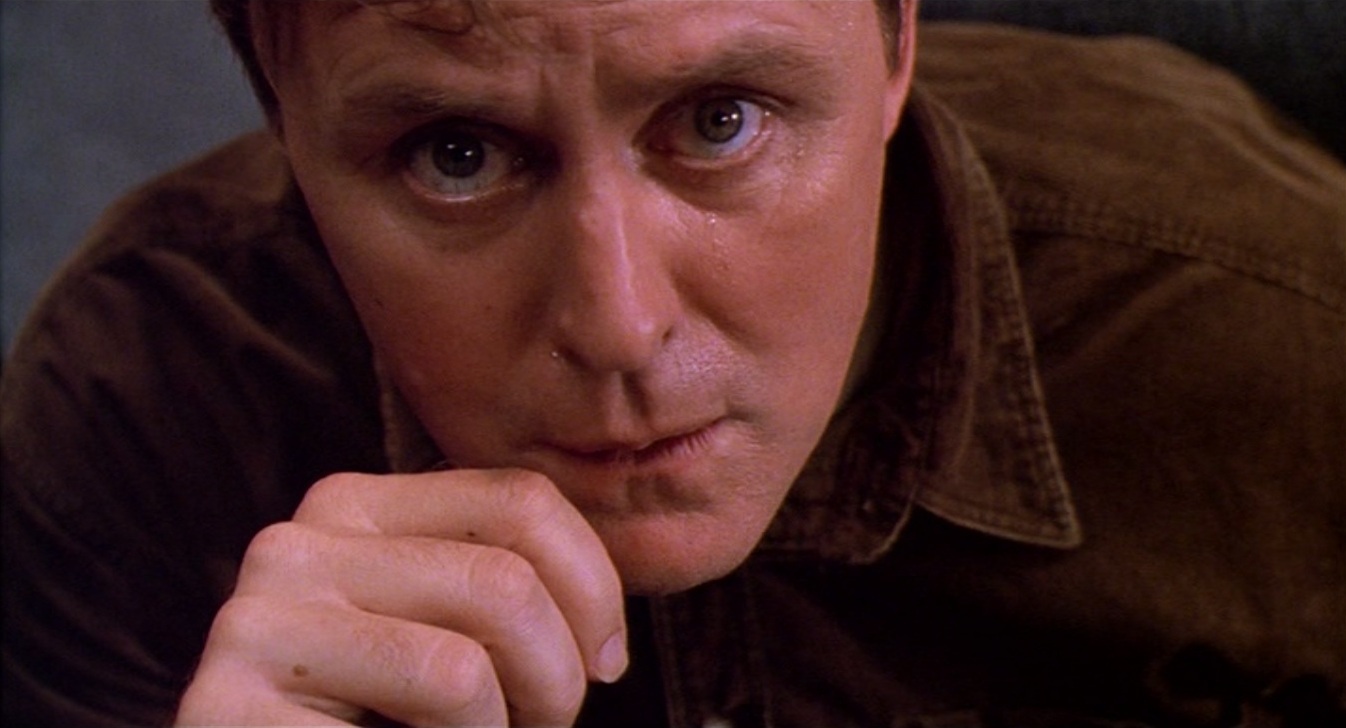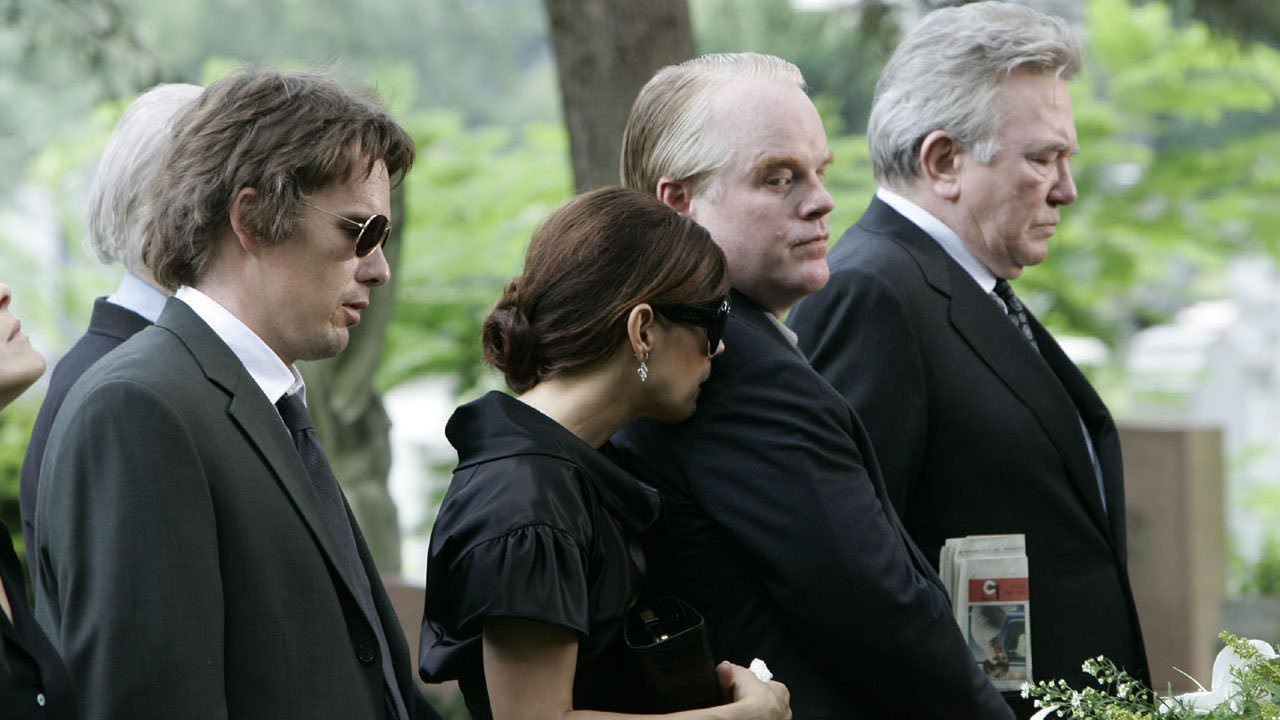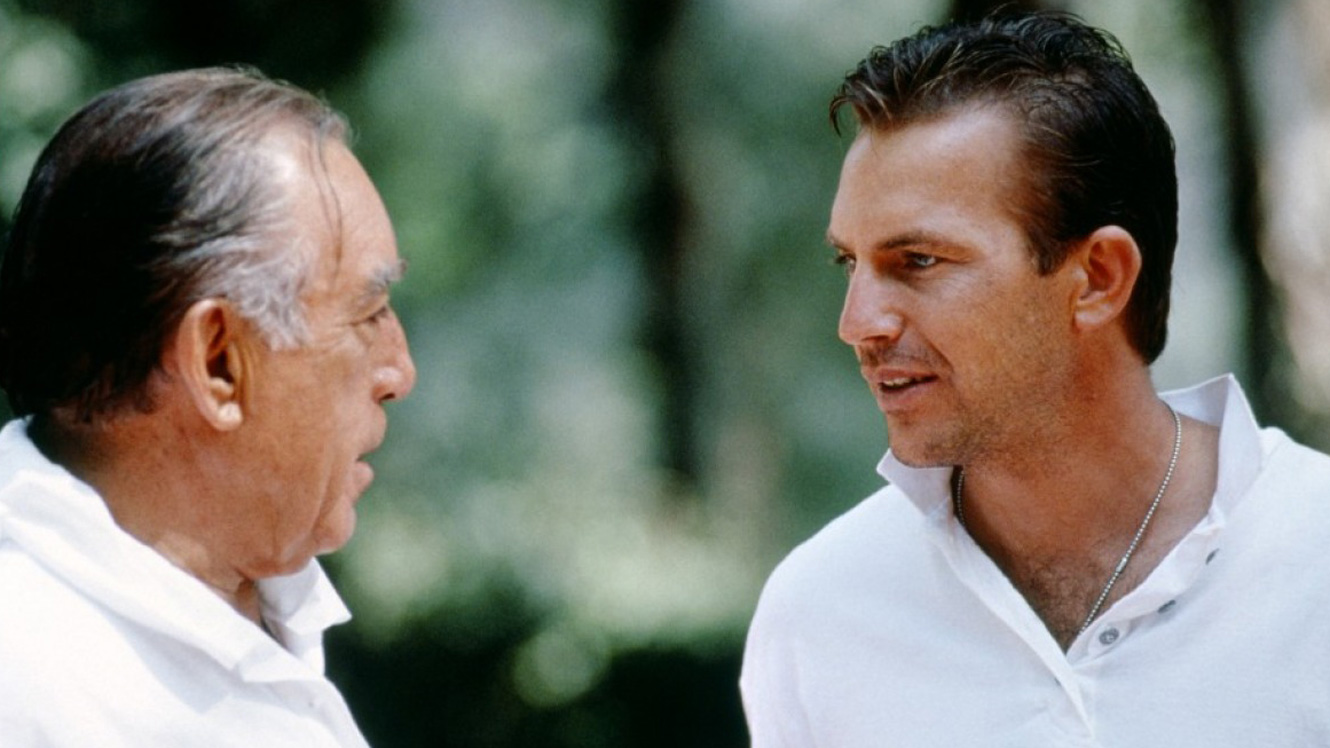6. Deadbeat At Dawn (Jim Van Bebber, 1988)

You can never, and I mean never, have enough low budget sleaze… but let’s not limit the power of Deadbeat at Dawn before examining it a little more. Deadbeat at Dawn is great in a lot of the ways that films with higher budgets aren’t allowed to be. It shifts in mood and genre, it features some of the most gritty and harsh fighting sequences put to film and is just so boudin its approach to a typical gang crime action thriller. It’s as freewheeling and entertaining as it is gory and gritty, and it remains so painfully overlooked that its honestly a real shame to see.
Van Bebber’s brilliant mixing and merging of genres, from exploitation to crime to action and horror, is exhilarating and makes the film so much more exciting than those which choose to take far less risks. Arrow Video also recently gave Deadbeat at Dawn something of a revival by putting it out on their DVD and Blu-ray line, so now you can see the sleaze in a pretty great transfer! No more excuses to skip it!
7. Raising Cain (Brian De Palma, 1992)

John Lithgow’s second, third and fourth appearance on this list (he manages to juggle three, yes three(!), roles at once here and makes them all separate enough that there’s no confusion) appear in one of Brian De Palma’s wonderful masterpieces Raising Cain. Now this is what a real thriller looks like! De Palma has always been stylistic whilst also thrilling his audience, since his time with the Movie Brats in the early 1970s all the way to his most recent film, Domino, released last year, and Raising Cain is one of his absolute best works.
As usual, Raising Cain sees De Palma lift ideas and stylistic traits from his filmmaking idol Alfred Hitchcock and place them into a more modern and grimy setting, this time focusing on similar ideas to those explored in Psycho (1960) as Lithgow’s villain struggles with split personality disorder. The set pieces here, especially the grand finale that is a total showstopper of a sequence, are second to none (De Palma has always proved a master of carefully thought out set pieces, from The Untouchables to the opening of Femme Fatale) and De Palma’s terrific awareness of how to position his characters and camera are just so impressive – if ever a director knew how to block a sequence and position his performers, it’s him.
The film is a genuine joy to watch just because of how orchestrated it feels, like sitting back and watching the most elegant magician perform a best-of montage of their favourite tricks whilst making it look easy. To put it simply, Raising Cain is one of the greatest thrillers ever to be produced, and it may not even be De Palma’s crowning achievement despite that! It has to be seen to be believed, which makes it a shame that it remains a film with a cult following rather than one with a large amount of mainstream recognition.
8. Rolling Thunder (John Flynn, 1977)

Whilst Paul Schrader’s script for this one may sound like nothing more than your typical revenge film, Rolling Thunder is much more complex than it may sound. There is something very ahead of its time in the harsh and jagged cutting (of both sound and image, surprisingly), and the film is certainly helped by focusing intently on the lingering psychological effects of the Vietnam war (something typical of the Schrader scripts of the ‘70s), lifting the revenge plot a grade above the majority of its contemporaries.
John Flynn’s direction is clear and to the point, sharpening the plot through the eerie visuals just as leading man Major Charles Rane (played by William Devane) sharpens his hook. It’s a cold, harsh throwback revenge film – if you’re a fan of the genre, this is one of its overlooked peaks.
9. Before the Devil Knows You’re Dead (Sidney Lumet, 2007)

The final film from filmmaking master and veteran Sidney Lumet (known for a range of incredible films – 12 Angry Men, Serpico, Dog Day Afternoon, Network, etc.) is a sobering one. Lumet was never known for being bombastic by any means, but Devil (yes, we’ll be shortening the title) sees Lumet strip back his craft more than ever before to bring about a distinctly striking realism that adds an immeasurable amount of impact to the film.
Ethan Hawke and Philip Seymour Hoffman bring their absolute A game – both may give career best performances here, but both are excellent actors, so it is hard to say exactly – and bring their sleazy characters to life in this brilliant tragedy that takes inspiration from all of those usual Greek tragedies surrounding fate and family. Everything that can go wrong most certainly does, making for a sharply kicking gritty drama/crime thriller that will most likely make you feel pretty terrible afterwards… but in all the right ways.
10. Revenge (Tony Scott, 1990)

Tony Scott is one of the absolute greats of the thriller genre – he always was. Practically all of his films, to some extent, are deeply entrenched in the traits of the thriller genre in terms of both his style (which is thrilling in and of itself), but Revenge stands out as one of the clearest examples. Scott’s output during the 1990s is especially formally thrilling thanks to Scott’s consistent attempts to push film as far as it can possibly go (he’d realise his full vision in the 21st century as digital filmmaking opened doors previously kept firmly locked, even with a lost key), and Revenge proves as a great example of all things thrilling in the movies.
With its slow burn leap of faith that goes off course from Scott’s other work to date, Revenge makes for a more chilling film that one would initially expect, and it functions as a great stage for Kevin Costner to give one of his best performances as the leading man who finds himself the perpetrator of the action that actually calls for the revenge, rather than the victim. Revenge is a wonderful diversion from many of the more tired traits of revenge thrillers, and it makes for one of the best action/thriller films of the 1990s because of its willingness to try different ideas whilst still staying within the boundaries of what the genre can be or do. It’s incredible, and one of Scott’s greatest, and most overlooked, films.